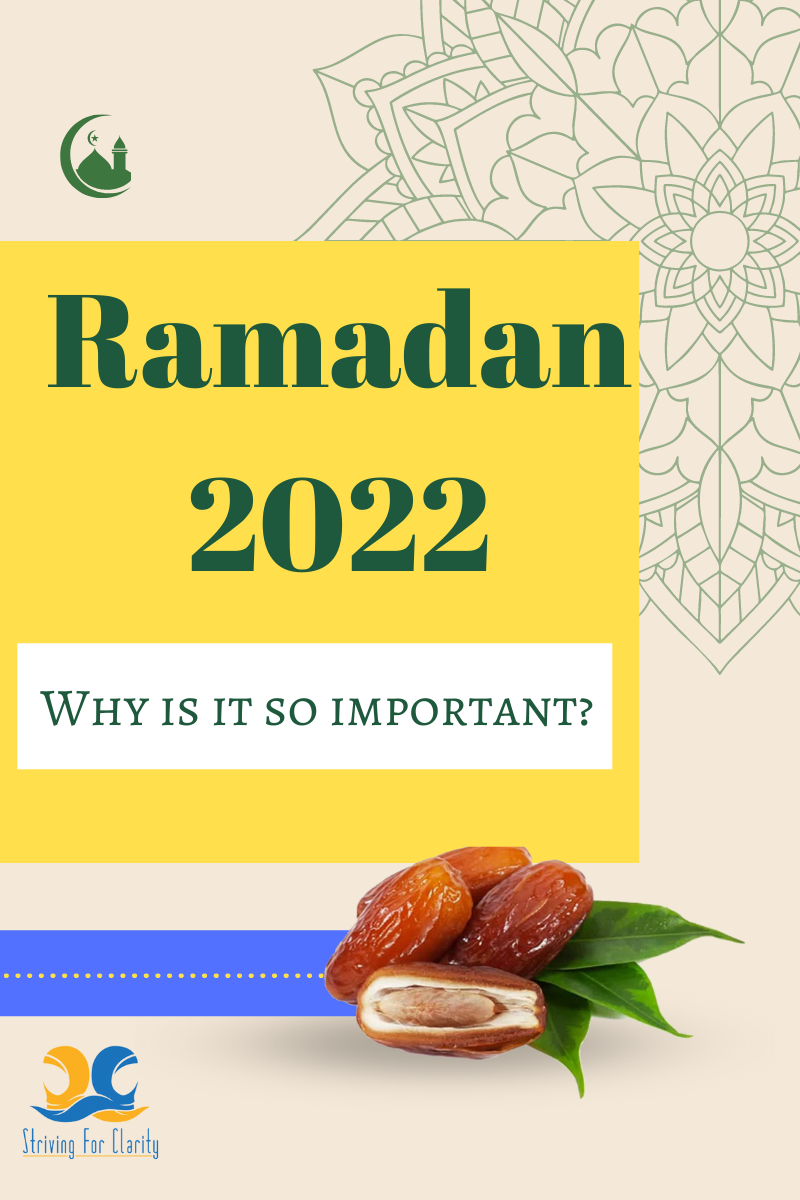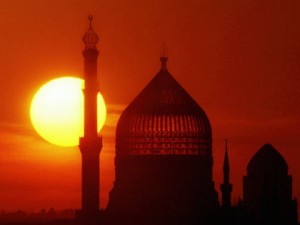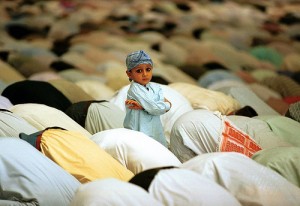|
Each year, Muslims around the world celebrate the commencement of Ramadan. There’s a feeling in the air like no other. The sacredness it brings is undeniable. Why is this month so important to Muslims? O ye who believe! fasting is prescribed to you as it was prescribed to those before you that ye may (learn) self-restraint. - Surah Al-Baqarah: Ayah 183 As Muslims, we follow the Qur’an and the Sunnah. Allah (SWT) commands us through a few verses in the Qur’an to observe the month of Ramadan and the reasons as to why Fasting is prescribed to us. It therefore becomes an obligation for each and every Muslim, with a few exceptions such as those who are ill and those who are travelling. At the commencement of Ramadan, Muslims Fast every day from dawn until dusk as a means of self purification for the mind, body and soul. However, there is so much more to this Holy Month with the Ummah making the most of the benefits and rewards it brings. The revelation of the Qur’an The Qur’an was revealed to Prophet Muhammad (PBUH) at the cave of Hira during the month of Ramadan. The Angel Jibra-eel (Gabriel) commanded our Prophet Muhammad (PBUH) to recite a verse from the Qur’an and would go on to revise with him every night during the month of Ramadan. Allah (SWT) commanded Prophet Muhammad (PBUH) to recite and teach the Qur’an to people, where they in turn would learn and teach it to others. The best of you are those who learned the Qur’an and taught it (to others). - Hadith As rewards are increased during this blessed month, it is the ideal time to spend more time reciting and reflecting on verses of the Qur’an. To gain a deeper understanding on why the Qur’an serves as a gift to humanity, we encourage you to read one of our previous articles titled: “Qur’an and reflecting” and to also take time to look at our Wasila Cards which contains Qur’an verses to reflect on The purpose of Fasting Muslims fast every year during Ramadan to attain piety and become closer to Allah (SWT). This is done by purifying the soul through abstaining from sin and cleansing the body by abstaining from food and drink from dawn until dusk. It is a commandment of Allah (SWT) in the Qur’an and therefore becomes obligatory on every Mukallaf Muslim that is in good health. Anything that is made obligatory directly from Allah (SWT) becomes the most important aspect of a Muslim’s life. In addition to Fasting during the month of Ramadan being a commandment by Allah (SWT), the benefits it reaps include: Spiritual Reflection and growth Fasting during the month of Ramadan increases Taqwa (consciousness of Allah SWT). As we refrain from eating and drinking during the day, we train our bodies to become disciplined and to avoid self-indulgence. As we become more discplined with food and drink, it creates a consciousness of refraining from over-indulgence in other aspects too – i.e. refraining from seeking happiness in worldly pleasures and focusing on spiritual reflection and growth. This is where true happiness lies as you become grateful with less and focus more towards preparing for the after life. With increased Taqwa comes increased spiritual reflection and growth. As Fasting is a way of cleansing the body, it opens our mind more and we start reflecting on how we can become better Muslims. As we reflect, we seek forgiveness for our wrongdoings, seeking emancipation from our past sins and asking Allah (SWT) for protection and guidance so that we can strive towards becoming better Muslims with each day. Increased Rewards and Blessings Ramadan is a great opportunity to maximize on the blessings that comes with this month. A few hadiths that mention the increased rewards and blessings this month brings : The Messenger of Allah (saw) said, "When the month of Ramadan starts, the gates of the heaven are opened and the gates of Hell are closed and the devils are chained." - Hadith Narrated Abu Huraira(r.a): The Messenger of Allah (saw) said:"... whoever fasts during Ramadan out of sincere faith and hoping to attain Allah's rewards, then all his past sins will be forgiven. - Hadith The Messenger of Allah (saw) addressed his companions on the last day of Sha`ban, saying, "Oh people! A great month has come over you; a blessed month; a month in which is a night better than a thousand months; month in which Allah has made it compulsory upon you to fast by day, and voluntary to pray by night. Whoever draws nearer (to Allah) by performing any of the (optional) good deeds in (this month) shall receive the same reward as performing an obligatory deed at any other time, and whoever discharges an obligatory deed in (this month) shall receive the reward of performing seventy obligations at any other time. It is the month of patience, and the reward of patience is Heaven. It is the month of charity, and a month in which a believer's sustenance is increased. Whoever gives food to a fasting person to break his fast, shall have his sins forgiven, and he will be saved from the Fire of Hell, and he shall have the same reward as the fasting person, without his reward being diminished at all. - Hadith Muslims also observe Laylatul Qadr which occur on one of the last 10 nights of Ramadan. As stated in the Qur’an: We have indeed revealed This (Message) In the Night of Power: - Surah Al-Qadr: Ayah 1-5 Creates a sense of balance Islam is not an all or nothing faith. You have to start from somewhere and build up to where you would ideally like to be. Fasting during Ramadan is a period to start breaking bad habits, increase good deeds and to sustain a sense of balance between making the most of this life while striving for the Hereafter. While Fasting increases your spiritual awareness, it also makes you more alert of the physical world in the sense that the sun in the sky becomes an important observation for Suhoor and Iftar. You become more aware of the times of the positioning of the sun, making you more aware of when each prayer time is. You develop a healthier relationship with food, becoming more grateful for things you may have previously taken for granted. Increase Acts of Charity Another aspect that is highly regarded during Ramadan is to increase charitable acts. Muslims have an obligation towards the less fortunate. Your Fast will not be accepted unless you make your contribution of Zakat al-Fitr (Fitrana) during Ramadan, but before Eid Al-Fitr, so that the less fortunate can enjoy their day of Eid Ul-Fitr as well. As there is the promise of increased rewards and blessings during this Holy Month, Muslims go over and beyond to help those in need, seek forgiveness from the Almighty (SWT) and aim to become better people. May Allah (SWT) guide, protect and forgive us all during this Holy Month of Ramadan and may we sustain the habits of good deeds afterwards In Sha Allah. Written by: Zaghra Savahl
0 Comments
A week ago, I went on Twitter and saw a ton of commentary regarding a certain article where two Muslim women wrote about their decision to stop wearing the headscarf. I generally choose to not comment on such articles but just three weeks prior there was a blog post written by a young Muslimah where she claims that it is perfectly ok to practice Islam without engaging in many of the prescribed duties that Allah(SWT) tells us to and without refraining from what we've been told to refrain from. In essence, her article promotes the idea that one can be a good, practicing Muslim without actually practicing Islam. This blog post(I have chosen to not post the link because I refuse propagate this 'idea' any more that it already has) then spurned a few other blogs posts in support of this 'idea'.
Articles and blog posts such as these just adds to the list of Muslims encouraging each other to sin under the banner of "there's more to Islam than (insert fard action here), it's what's in your heart that matters". The problem with this idea though is that if Islam is truly in your heart, you will do everything within your power to please your Rabb(Lord) and the best way to do that is by doing what He has obligated us to do and refraining from what He had made prohibited for us. As of late, there's a group of Muslimahs encouraging others to pray while on their menses(an act that we all know is forbidden) and another group of Muslims that believe it is optional to recite in Arabic during salah(a practice that's been increasing over the last decade or so). I am extremely saddened by how easy it seems to be for some people to discard parts of the deen. There are many Muslims who tell other Muslims "you can grow to observe hijab, you can start praying all five prayers later, you can stop indulging in the dunya when you're old or after you're married, etc. In the meantime, as long as you love Allah, you're fine. Everything else is just extra". Unfortunately, my fellow Muslimeen, that is NOT the case. Fortunately, observing hijab is not an option. Avoiding tabaruj is not optional. Praying is not optional. Avoiding zina is not an option. Keeping isbaal is not an option either. We've been told what to do by our Lord and RasulAllah(SAW). The only thing left for us to do is to say ok and comply. We can't simply say because our intentions are to please our lord, we can get the same benefits without completing the actual deeds. We must strive harder as an ummah to hold unto deen-ul-Islam instead of hurriedly slipping away. Allah is merciful but we must also be sincere. Of course our deeds alone will not gain us entrance into Jannah but Islam is comprised of the belief in our hearts and the actions of our limbs and we therefore must combine them. As I end this article, I want to leave you all with two reminders: First and foremost, let's remember that our intentions are important but we need to make our deeds match them. If you see someone drowning and just sit there but you had the internal intention to save them, is it the same thing? Secondly, remember that whenever you encourage someone to sin, each time they do the action, you're also incurring their sins. If that alone does not cause you to rethink before telling someone it's okay to take off their headscarf and jilbab, or that it's permissible to drink or that they shouldn't be so "fiqhy", ask yourself if you want to risk receiving their sins. Ask yourself if you're prepared to feel the wrath of your Lord. Yes, Allah is merciful. Yes he is just but to receive his mercy and his justice we have to actually be trying to live in the way that he's told us to live. I am definitely not perfect and constantly striving to improve in my embodiment and practice of Islam. I hope I never get so low in my faith and strength that I start making frivolous excuses for my indiscretions. All in all, we can't cut corners in our faith and expect to receive good from it. May we all be guided appropriately and remain on the Straight Path. ----JMuslimah Many Muslims often struggle to perform religious duties because they are worried about the opinions and reactions of others. I have noticed that often times when I ask someone why they don’t fulfill a certain religious duty(staying away from bars/haraam events, eating halal only, utilizing proper manners, pausing casual interactions to go make salah), their response is usually that they do not want to draw attention to themselves. I have a really good friend and once we were discussing hijab( for women) and she stated that if she were to have a daughter she would not want her to cover to school because she might get made fun of. I also know parents who choose to not have their older children fast during Ramadan when there’s school so that they do not stand out among their classmates. Now as someone who has struggled with not wanting to stand out, I find this to be quite sad. Essentially, when we think that it is okay to not do what Allah(SWT) has told us to do simply because of the opinions of others, we are committing a form of minor shirk. We are saying that the opinions and decisions of the creation are more important than that of the Creator(Audhubillah). In today’s society, there are many people who are throwing aside their deen for the sake of the dunya and worldly affairs and it is important that we strive to uphold our beliefs within ourselves, our friends and our families. It is impertinent that we consistently ensure that we are fulfilling all of our religious duties to the best of our abilities. When we are instructed by Allah(SWT) to do something, we must. Allah(SWT) tell us: The only saying of the faithful believers, when they are called to Allāh (His Words, the Quran) and His Messenger (SAW), to judge between them, is that they say: "We hear and we obey." And such are the successful (who will live forever in Paradise). And whosoever obeys Allāh and His Messenger (SAW), fears Allāh, and keeps his duty (to Him), such are the successful ones.” Qur'an 24:51-52 From this we know that a key component for entering Jannah as well as a major characteristic of a Muslim, of a believer, is one who when they are told that Allah(SWT) or His Messenger(SAW) has instructed him/her to do something, their immediate response is to submit and obey to the best of their ability. Allah(SWT) also reminds us that:
Recite what has been revealed to you of the Book and establish salat. Salat precludes indecency and wrongdoing. And remembrance of Allah is greater still. Allah knows what you do.” (Quran 29:45) As we all know, Muslims are obligated to pray five times a day and there are very few exceptions to this obligation. To not perform all prayers during their prescribed time is a grave sin that you will have to answer for on the Day of Judgement. Along with our five mandatory prayers, the Prophet(SAW) was known to also pray extra prayers which we have come to know as "Sunnah salah" these prayers are in addition to the five that we already have to do and more blessings are earned for praying them.
Whenever I'm engaging in a conversation with someone about the importance of prayer a common question is "why is the prayer so formatted? Why can't someone just sit down and pray to God?" I think this questions stems mainly from our understanding of what prayer is. In Islam, the prayers that we engage in five times a day are called "salah" which are referred to as ritualistic prayers. These prayers come with their prescribed sayings and movements and must be done in the proper manner. In Islam, we also have the concept of "dua" which is most often referred to as "supplications". This is when we simply sit down and ask/tell Allah what we want. Salah has been ordained upon us for numerous reasons. This first and foremost reason is that it is a sort of test, a way to gauge our obedience and submission to our creator. Allah(SWT) is asking us to wake up from our sleep, pause whatever work we're doing, turn off our favorite tv show to worship him. He's testing us by seeing if we will truly disengage from our worldly affairs and worship him. Salah also gives us a chance to connect with Him and His word. During our busy day, He is giving us an opportunity to stop at least five times to just remember Him, to talk to Him, to connect with Him. The Prophet(SAW) tells us that “When any one of you stands to pray, he is communicating with his Lord, so let him pay attention to how he speaks to Him.” as well as that “The closest a person is to His Lord is when he is in prostration” Observing our salah helps to build a closer and better relationship with our creator. By enjoining the act of salah upon us, Allah(SWT) is also giving us the opportunity to remember him and remember his guidance and mercy. Seventeen times a day(the amount of rakat total in the 5 prayers) we recite Surah Al-Fatiha. That means that 17 times every day, we remember through our recitations that Allah is merciful, that He is The Master of the Day of Judgement, that He is The most compassionate. Seventeen times a day we make dua to Him to help us stay on the straight path. Simply by stopping what we are doing five times a day for no more than 10-15 minutes, we are able to engage in such a rewarding practice. Salah is also important because it guards us from evil and helps us stay away from sins. When we make salah we are seeking Allah’s help and protection. We are asking him to protect us from the temptations of Shaytan and assist us in remaining steadfast. Observing salah protects us from committing sins because if one is sincere in their salah, they will most likely not finish their salah and then go engage in haraam activities. Alongside this, if one is engaging in haraam behaviour and still values their salah, stopping to pray removes them from sinful situations. |
IntroductionAs humans in this dunya we are inundated by many distractions, misguidance, and falsehoods therefore making life much more confusing and difficult. What are we thinking, saying, observing, and experiencing in our lives? Are we truly living by Islamic ideals? This is where we can choose to actively “Strive For Clarity.” Archives
April 2023
Categories
All
|
 RSS Feed
RSS Feed



